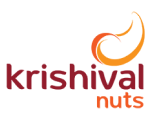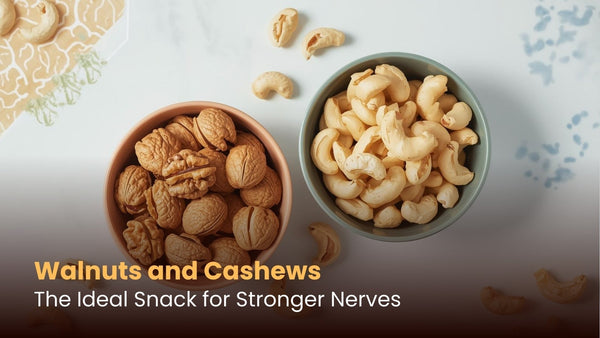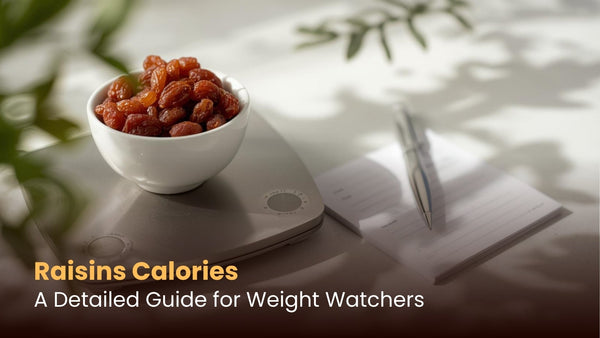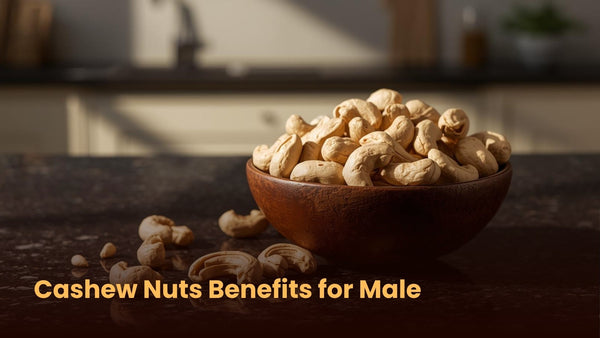Nutrition experts generally agree that for most adults, consuming around 15 to 20 cashews each day, about one ounce or 28 grams, is a healthy and nourishing choice. When enjoyed in moderation, cashews are a great snack option, offering essential minerals, fibre, protein, and healthy fats. However, due to their high calorie content, it’s wise to enjoy them in moderation to prevent any discomfort or weight gain. The right amount can also vary based on your dietary goals; active individuals might be able to have a bit more, while those looking to lose weight may find that smaller portions work better for them.
Table of Contents
- Introduction
- Overview of Cashew Serving Size
- Health Benefits of Consuming Cashews in Moderation
- Heart Health
- Boosts Metabolism
- Strengthens Bones
- Good for Skin and Hair
- Blood Sugar and Cholesterol Regulation
- Risks of Excessive Consumption of Cashew Nuts
- Special Population Considerations for Eating Cashew Nuts
- Practical Tips for Portion Control
- Conclusion
- Frequently Asked Questions
Overview of Cashew Serving Size
- A serving size of 1 ounce (28 grams), or approximately 15 to 20 cashews, is advised for daily consumption. In addition to helping most adults control their calorie intake, this amount offers minerals, fibre, protein, and healthy fats to promote balanced nutrition.
- A typical serving of cashews is one ounce (28 grams), or roughly 15 to 20 nuts. About 165–190 calories, 4–5 grams of protein, 13 grams of fat (mainly good fats), 9 grams of carbohydrates, and a good amount of copper, magnesium, iron, zinc, and phosphorus are all included in this piece.
- Serving sizes for cashews vary, but most adults find that 1 ounce (28 grams, or roughly 15–20 nuts) is sufficient. However, if your goal is to gain muscle or increase your energy levels, you could aim for up to two ounces each day. Don't forget that during pregnancy, for heart health, and for children, you'll need to adjust those servings accordingly.
Health Benefits of Consuming Cashew Nuts in Moderation
Excess consumption of cashew nuts is not a good idea, regardless of their nutrient content. Rather, consuming them in moderation offers a range of health benefits.
Heart Heath
Eating cashews in moderation can be a great way to support your heart health. These little nuts are rich in monounsaturated and polyunsaturated fats, which are known to help lower "bad" LDL cholesterol while boosting "good" HDL cholesterol. Additionally, cashews are a fantastic source of magnesium, which is essential for managing blood pressure and maintaining a normal heart rhythm, ultimately lowering your cardiovascular risk. They also contain antioxidants that help prevent inflammation and oxidative stress, offering further protection for your heart. Studies suggest that including cashews in your diet may help lower triglycerides and blood pressure, contributing to better overall heart health.
Boosts Metabolism
Cashews can really give your metabolism a nice little boost in a few different ways. They’re high in protein, which means your body burns more energy to digest them. On top of that, they’re rich in antioxidants and healthy fats that aid digestion and boost energy production. Studies have shown that cashews actually pack fewer calories than you might expect, which can help with weight management without putting the brakes on your metabolism. The magnesium in cashews is essential for converting food into energy, enhancing your metabolism at the cellular level. So, if you enjoy cashews in moderation, you could be on your way to a more efficient metabolism.
Strengthens Bones
Cashews are fantastic for your bones, thanks to their impressive nutrient profile. They’re rich in magnesium, which plays a crucial role in helping your body absorb calcium and build strong bones. Plus, they offer phosphorus, which is key for keeping your bone structure intact, and copper, which aids in collagen production, giving your bones the flexibility and strength they need. These minerals work together to enhance bone density and support overall skeletal health. So, enjoying cashews is a natural and effective way to keep your bones strong and healthy over time.
Good for Skin and Hair
Cashews are amazing for your skin and hair health, thanks to their rich nutrient content. They’re a great source of copper, which helps with collagen production, keeping your skin firm, elastic, and youthful. The healthy fats in these nuts help to moisturise your skin, ensuring it stays soft and hydrated. When it comes to hair, cashews provide biotin, zinc, and magnesium, which are crucial for promoting hair growth, strengthening your strands, and preventing hair loss. They also improve scalp health and add a nice shine, making your hair smoother and less likely to break.
Blood Sugar and Cholesterol Regulation
Cashews are great for regulating blood sugar and cholesterol, which is fantastic for your metabolic health. Their low glycaemic index helps prevent those annoying blood sugar spikes, while the fibre, protein, and healthy fats they offer slow down digestion and improve glucose control. Plus, the monounsaturated fats found in cashews are effective at reducing "bad" LDL cholesterol and increasing "good" HDL cholesterol, which supports heart health. So, when you include cashews in moderation, you can enjoy better blood sugar stability and a healthier cholesterol profile.
Risks of Excessive Consumption of Cashew Nuts
- Overindulging in cashews can cause weight gain because they’re high in calories and fats. When you eat more calories than your body needs, those extra calories are stored as fat, leading to unwanted weight gain. Even though cashews have healthy fats, eating too many can upset your body’s energy balance, resulting in more fat storage and possible health issues.
- Possible allergic reactions to cashews include itching, swelling, and a tingling sensation in your mouth or throat. You might also notice skin reactions, such as hives or eczema. In more severe cases, it can lead to breathing difficulties, throat swelling, and anaphylaxis, which is a critical condition that demands immediate medical care.
- Eating too many cashews can throw off your mineral balance, especially when it comes to potassium and calcium. A high intake might interfere with how well your body absorbs these minerals, leading to imbalances that could hurt your bones, muscles, and cardiovascular health. Sticking to a moderate amount of cashews is key to keeping those mineral levels in check.
Special Population Considerations for Eating Cashew Nuts
- Children who munch on 5 to 10 cashews a day can really benefit from essential nutrients like protein, healthy fats, copper, and magnesium, all of which support their growth, boost their immunity, and strengthen their bones. You can easily pound or chop the cashews as needed, and always remember to check for allergies.
- If you're pregnant or nursing, it's perfectly fine to enjoy up to 1 ounce of cashews each day. These little nuts are rich with healthy fats, protein, folate, iron, and magnesium, all of which are great for supporting your baby's growth and boosting your own strength. Stick to plain, unsalted cashews and be cautious about how many you consume.
- Athletes and those following high-calorie diets can enjoy up to 2 ounces of cashews each day. These tasty nuts contain energy-boosting healthy fats, plant-based protein, and essential minerals like magnesium and copper. This daily serving can aid in muscle recovery, help maintain endurance, and meet your nutrient requirements.
Practical Tips for Portion Control
- Try using small containers or snack bags to portion out your cashews in advance. Having pre-measured servings makes it super easy to grab a handful on the go, which helps you avoid mindlessly munching straight from a big bag. This way, you can maintain a steady intake of cashews and reduce over-snacking,
- Mixing cashews with other tasty foods, such as raisins, fruits, or vegetables, not only adds a burst of flavour but also brings in different textures and variety. When you pair cashews with fibre-rich snacks, you’re supporting portion control while also getting a good balance of nutrients and lasting energy for a wholesome snack.
- When you pick unsalted, soaked, or roasted cashews, you’re doing wonders for your digestion and nutrient uptake. Roasting them actually increases their antioxidant levels, while soaking helps reduce phytates that might interfere with digestion. Opting for unsalted varieties means you’re avoiding extra sodium, which is beneficial for your gut health.
Conclusion
In summary, most adults should aim for about 1 ounce of cashews each day, which translates to around 15 to 18 nuts. This amount is a perfect source of vital nutrients like healthy fats, protein, magnesium, and copper, while also helping to keep calorie counts low and avoiding any unwanted side effects. Enjoying cashews in moderation can support your heart health, brain function, and bone strength. Just be cautious, as overeating can lead to weight gain or digestive discomfort. Ultimately, being mindful of how much you eat will help you enjoy the health perks of cashews without the risks.
Frequently Asked Questions
What is the recommended daily serving of cashews?
You should aim for about 1 ounce of cashews each day, which is roughly 15 to 18 nuts. This serving size provides you with healthy fats, protein, and vital minerals, all while keeping the calorie count in check. Enjoying them in moderation can boost your heart health and overall nutrition.
Can eating cashews daily help with weight management?
Absolutely, including cashews in your daily diet can be beneficial for weight management, provided you don’t go overboard. They are abundant in protein, healthy fats, and fibre, which help you stay satisfied longer, making it easier to resist cravings and avoid overeating. The magnesium found in cashews plays a role in boosting your metabolism and regulating fat.
Is it safe for children to eat cashews every day?
Yes, it’s perfectly safe for kids to enjoy cashews daily, as long as in moderation. For little ones around 6 months old, starting with finely ground cashews or cashew butter is a great idea to prevent any choking hazards. For older kids, consuming 4 to 8 cashews can be beneficial for their growth, brain development, and digestion.
Can pregnant women consume cashews daily?
Yes, pregnant women can consume cashews daily, but it's wise to limit them to about 1 ounce, or around 15 to 18 nuts. Cashews are rich in essential nutrients like healthy fats, protein, and folate that are great for your baby's development. Opt for unsalted, plain cashews, and be mindful not to overdo it to avoid any digestive issues or allergies.
What are the possible side effects of eating too many cashews?
If you munch on too many cashews, you might find yourself gaining weight since they’re pretty calorie-dense. Overindulging can also bring on digestive issues like bloating, gas, and constipation. Additionally, the oxalates found in cashews can increase the likelihood of kidney stones. Enjoying them in moderation is definitely the best option.
Are dry roasted, raw, or soaked cashews healthier?
Raw cashews pack a bit more nutrition, keeping more of their enzymes and minerals intact, but they can be a tad tougher on the digestive system. Dry-roasted cashews, however, provide a delightful crunch and are richer in antioxidants, although they might come with some extra oils or salt. Soaking cashews can enhance digestion and nutrient absorption.
Do cashews have benefits for heart health?
Cashews are an excellent snack for heart health. They’re rich in healthy fats that can help decrease bad cholesterol (LDL) and raise good cholesterol (HDL). They provide magnesium, which is essential for regulating blood pressure. When eaten in moderation, cashews can help reduce inflammation and support your overall cardiovascular health.
How do I avoid overeating cashews?
If you want to avoid overindulging in cashews, consider portioning them out into little containers or snack bags rather than diving into the big bag. Pairing cashews with fruits or veggies can add some variety and help you feel fuller. Try to stick to just one small handful each day for a balanced approach.
Are cashews suitable for diabetics?
Yes, cashews are indeed a good option for those with diabetes. They have a low glycaemic index, sitting around 22 to 25, so they won’t lead to quick spikes in blood sugar. They’re also rich in healthy fats, protein, and magnesium, which can enhance insulin sensitivity and promote heart health.
Can I eat cashews every day if I’m trying to build muscle?
You can munch on cashews daily if you're aiming to build muscle. They pack around 5 grams of protein per ounce, along with healthy fats, magnesium, and zinc, all of which are great for muscle recovery and energy. Just remember to keep your portions in check to boost your gains without piling on extra calories.
https://krishival.com/blogs/health-nutrition/how-to-roast-cashew-nut?utm_source=seo_blog&utm_medium=seo_blog&utm_campaign=seo_blog&utm_id=seo_blog











Share Your Thoughts